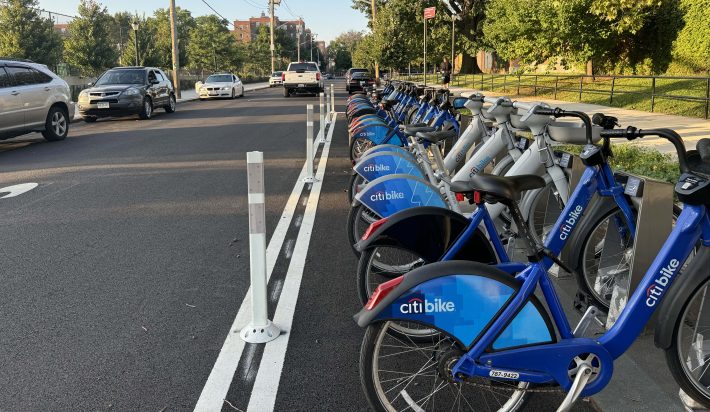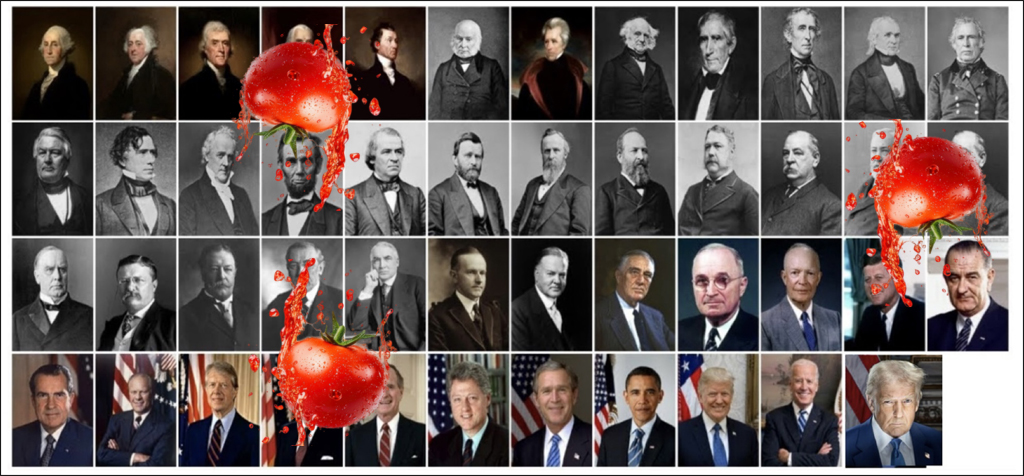Talk about a paper trail.
The City Council is expected to approve a bill as early as Thursday that would require the city Department of Transportation to notify lawmakers every time a single place for car storage is repurposed for a variety of reasons — a proposal that would dramatically slow down street safety fixes, the agency said.
Under Intro 103, the department would be required to notify the sitting Council member whenever even a single car-length space is slated to become car-share parking, space for a bicycle corral requested by a local business, or for a dock for Citi Bike.
The bill had been amended for an original proposal which would have required written warning to both Council members and the local community board for any space repurposed from cars for any purpose at all — a bill that the DOT said would have required the agency to write 900 notices per day.

Despite the compromise between the DOT and the bill’s sponsor, Council Member Joann Ariola (R-Queens), the agency still finds the bill burdensome.
"DOT is currently required to give notice when a major street redesign involves the full-time removal of street parking," agency spokesperson Vin Barone told Streetsblog. "While the agency has been working with the Council to make this proposal less burdensome and appreciates their adjustments, we remain concerned that additional mandated notice requirements would slow down implementation of key agency programs."
Some Council members agree.
"The proposed legislation creates additional hoops and hurdles and potentially obstacles for good street safety initiatives to move forward," said Council Member Lincoln Restler (D-Brooklyn), who does not support the proposal.
Brooklyn Borough President Antonio Reynoso, who has supported street redesigns, agreed saying any effort to slow down the DOT's redesigns is counterproductive.
"I don’t know why we entertain any effort to stop or slow-roll safe street design. If there’s anything we should be able to move quickly and move together on, it should be streets that keep us and our kids safe,” said Reynoso.
Ariola, a longtime foe of bike lanes and street redesigns, said her bill was needed because residents often wake up to find “their” parking spots had been “removed” — but that language ignores that the roadway is public space that is best used for all residents, not just the few who wish to store their private vehicles in the roadway.
"It’s a sad state of affairs when our local leaders are trying to gum up the works and make our government less effective,” said Sara Lind, the executive director of Open Plans, the livable streets advocacy group (Open Plans shares a parent organization with Streetsblog). “Drivers are not entitled to free public space to store their private property and it’s not up to community boards to make decisions about how to use our streets. No one asked the majority of New Yorkers who don’t own a car if they wanted their curbs used for free parking.”
Eric McClure, the executive director of StreetsPAC, had testified against the bill at its hearing. He objected to Ariola's framing that her constituents' parking was being eliminated.
"We as a larger society in New York City are to blame for allowing people to think that it's somehow their God-given right to park their car on the street close to their home or their business," said McClure. "We've just allowed people to develop this mentality that that's their space, that's not public space. So many people fail to make the connection that their car, their private automobile, not a superior thing to a Citi Bike station that can serve dozens of different people, or curbside sanitation pickup, or curb extension to keep people safe when they're crossing the street."
The original language would have slowed down the DOT’s implementation of daylighting, which involves removing the parking spots closest to an intersection to increase visibility. Council Member Selvena Brooks-Powers, one of the bill's 19 co-sponsors, is also sponsoring a bill that would require the city daylight every intersection.
The bill’s new specificity makes sure daylighting doesn't get stuck in the crosshairs. But it still creates redundancies since the DOT often notifies boards and Council Members about parking repurposing anyways.

Because the bill affects Citi Bike, advocates say that could result in more docks ending up on sidewalks, instead of in roadways — an incentive to sidewalk riding.
"Moving bike corrals and bike share off our sidewalks and into the street is one of the many infrastructure-first solutions that would reduce bike usage on the sidewalk,” said Philip Miatkowski, the senior director of research and policy at Transportation Alternatives. "Unfortunately, Intro 103 would make this even more difficult and force more bike riders to start and end their trips on the sidewalk."
The bill is just one of many that seek to make it harder for DOT to do its job. Intro 606, which seeks to have the department create a regulatory agency for e-bikes, and Intro 104, which would require the department to contact local fire houses when it wants to build a bike lane, are two more examples of this type of legislation being taken seriously by the Council.
These bills go against the city's stated goals of reducing car dependency, and other bills that have passed through the council already which attempt to give DOT power to do things quicker.
Some advocates think that these attempts to prop up car culture, are ultimately a losing battle.
"It's disappointing that the Council has kept pushing forward these micro management attempts. I think they're fighting what ultimately is a losing battle against the move away from car domination," said McClure. "The future of New York City is not more cars and not more driving. We might have to slog it out to get there, but I think ultimately those trying to prevent that from happening are going to find themselves on the wrong side of history."






